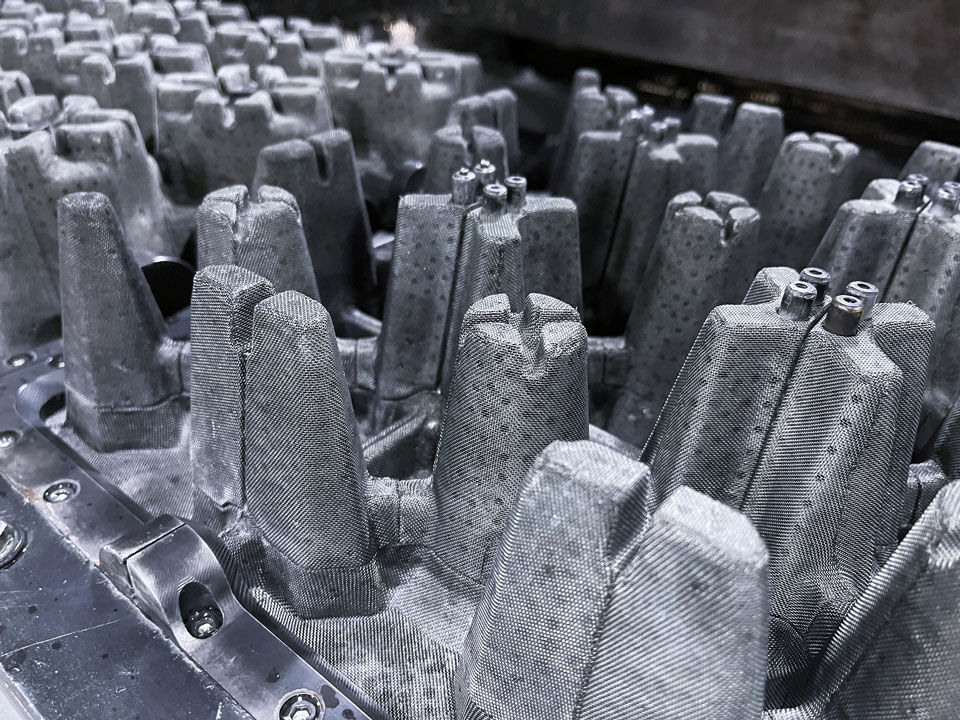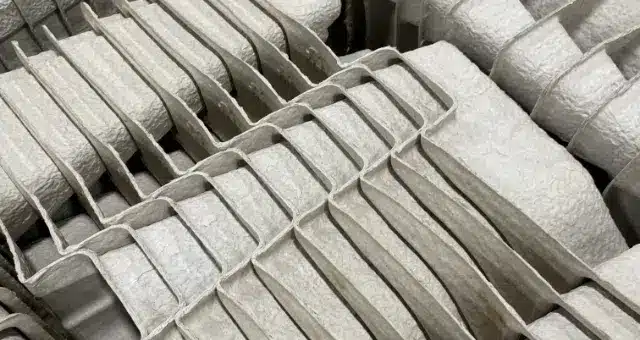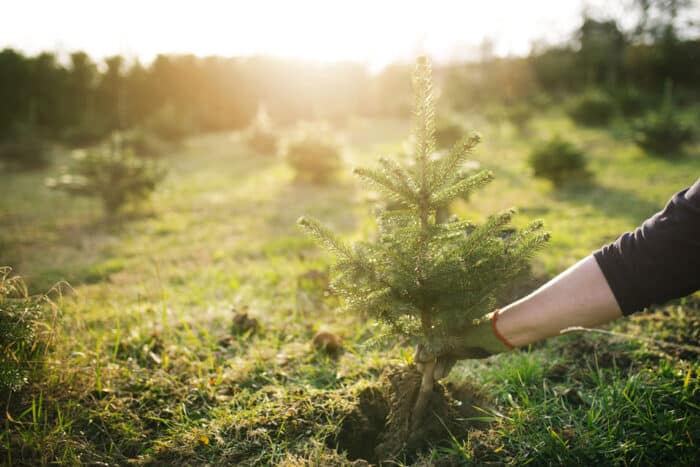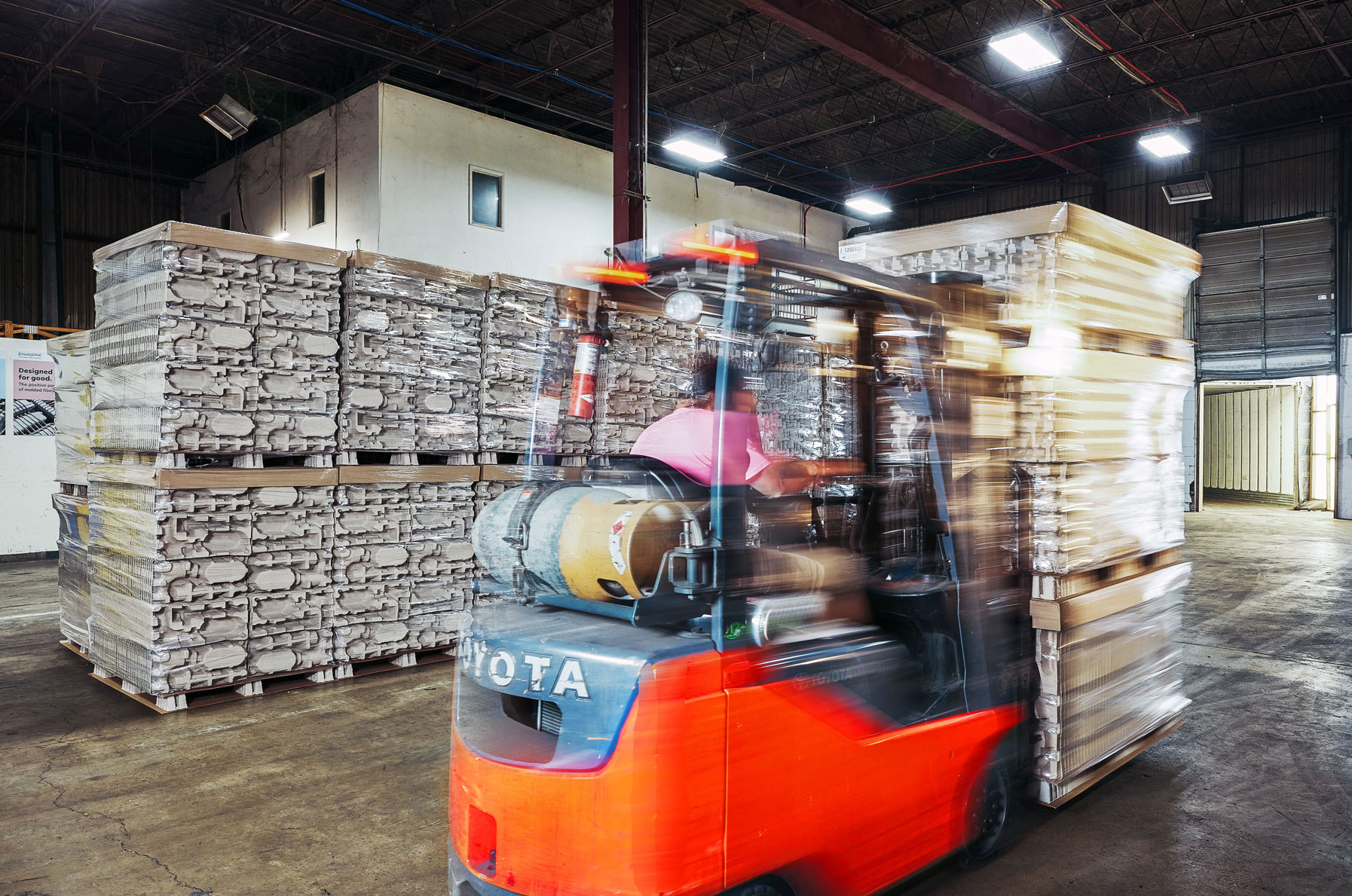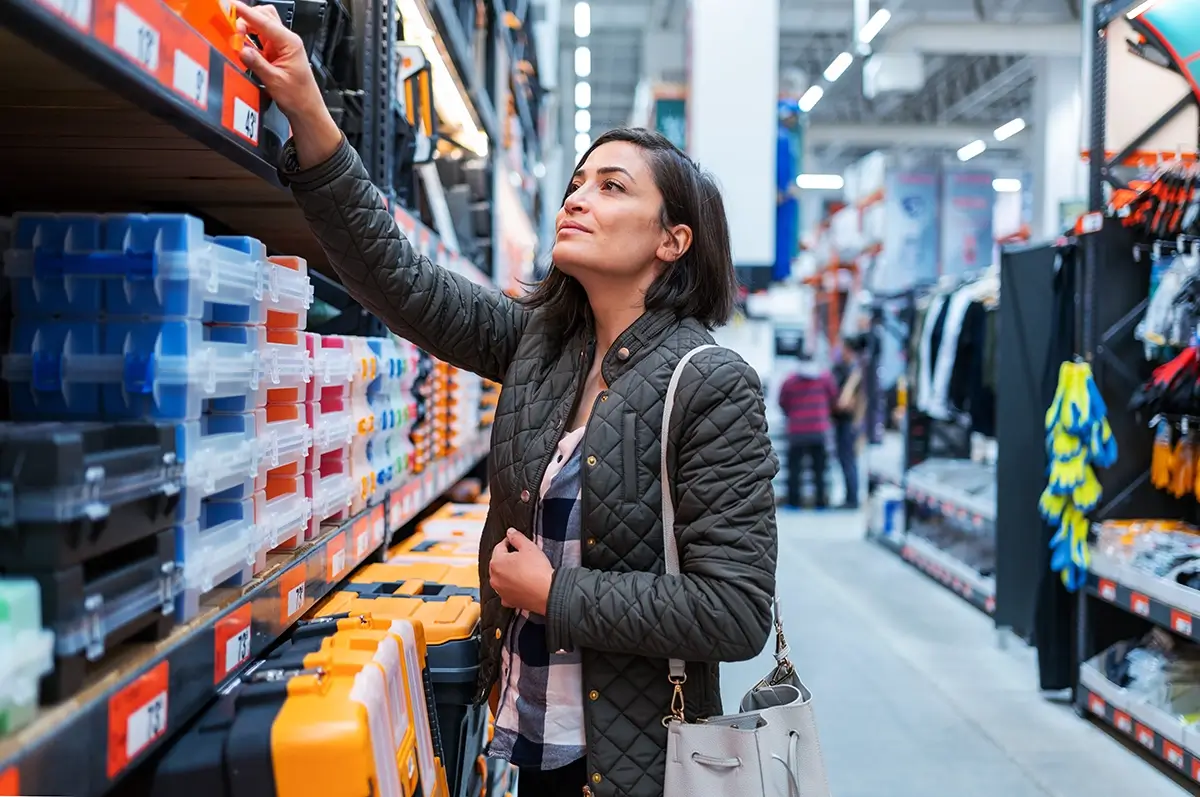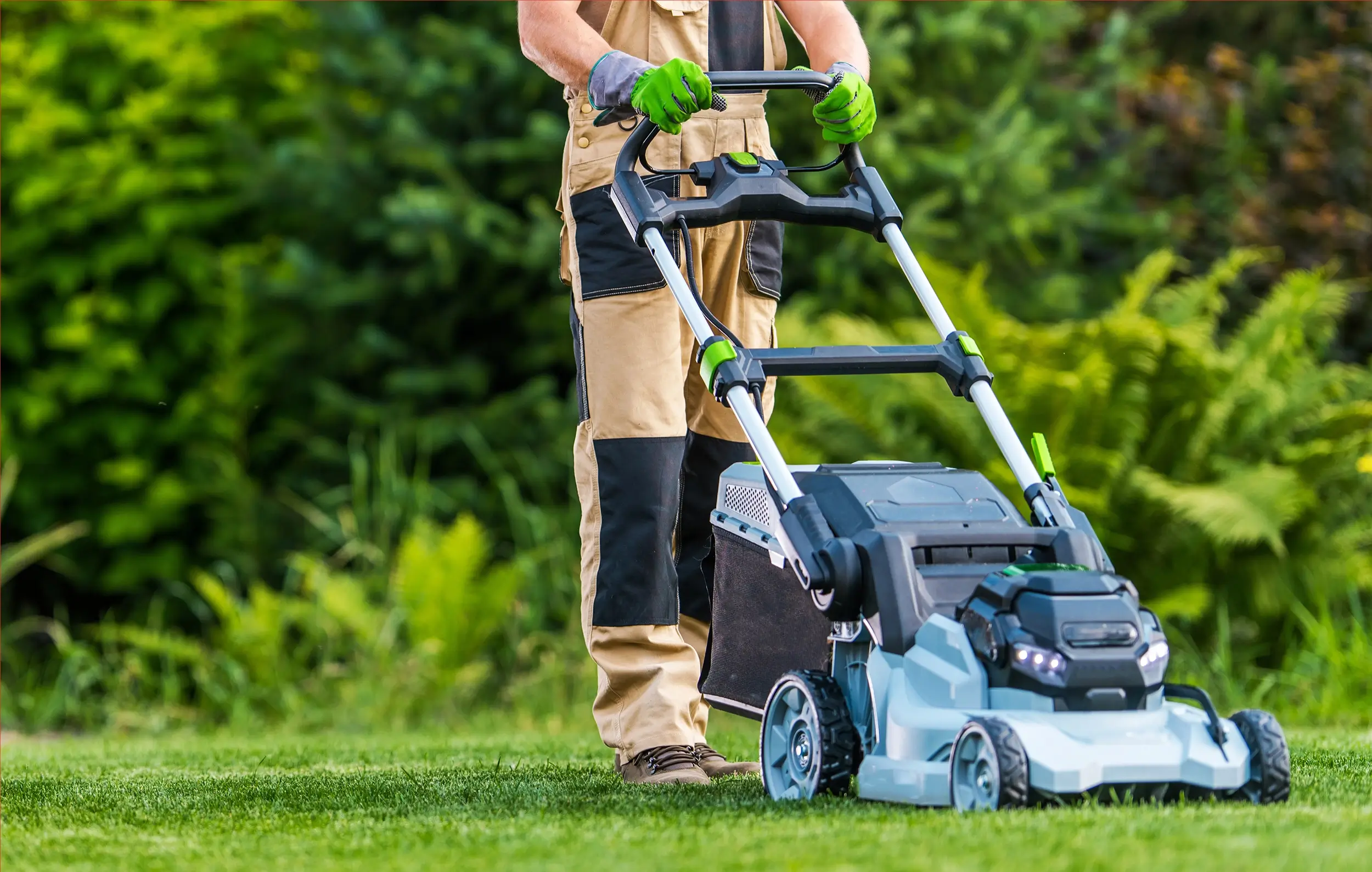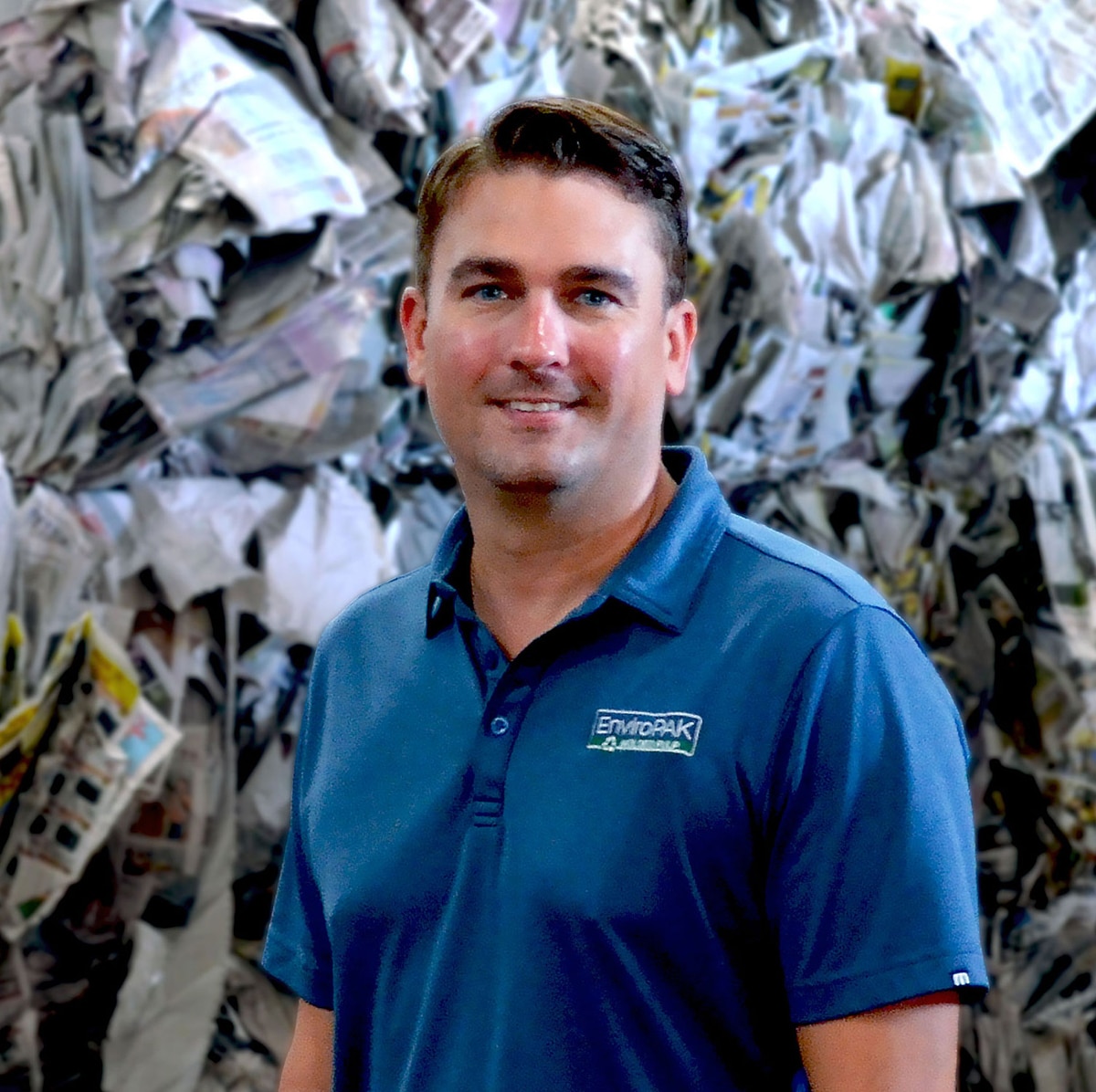In 1938 America was slowly seeing the light at the end of the depression tunnel. Unemployment lines were shifting into manufacturing lines as companies were beginning to roll more products out the door and onto store shelves. This rebirth of prosperity opened the way to new innovations to help enhance the lives of homeowners. One such advancement was the launch of the first gas powered mower by Toro.
What was once an oddity to see in neighborhood yards has today become a mainstay in our country as 54 million Americans mow their lawns every week. But the beauty of a well manicured lawn is showing some not so pretty side effects on our planet. The Journal of Environmental Management reports:
“Mowing a 2.47-acre plot of lawn produces greenhouse gasses equivalent to up to 2,443 kg of CO2 per year. It’s equal to the total amount of CO2 produced by a passenger airliner flying more than halfway around the world.”
Add in gas powered trimmers plus chainsaws, and the negative environmental impact is only compounded. According to the New York Times, “Hydrocarbon emissions from 30 minutes of yard work with a two-stroke leaf blower are about the same as a 3,900 mile drive from Texas to Alaska in a Ford F-150 pickup truck.”
“When it comes to these small gas engines in lawn and garden equipment, it’s really counterintuitive,” says Kirsten Schatz, a clean air advocate at Colorado PIRG, a nonprofit environmental organization. “This stuff is really disproportionately causing a lot of air pollution, health problems, and disproportionately contributing to climate change.”
The real beauty of having a nice yard: Achieving net zero.
With over 40 million acres covered by lawns in America, we truly are the land of the green. But the gas powered lawn equipment to achieve these results is associated with an estimated 5% of the total pollution produced in our country.
Known as ground-level ozone, it “causes more damage to plants than all other air pollutants combined,” according to the U.S. Department of Agriculture. There are ways consumers can curb these stats in favor of the environment. These include mowing less often, cutting grass in the evening, or simply reducing your lawn space with landscaping.
Consumers are also finding another way to reverse carbon emissions from gas powered lawn equipment use. They are switching to more eco-friendly buying choices such as electric or battery powered options. This sustainable lawn care movement is growing as evidenced in a recent report by Straits Research:
“The global Electric Lawn Mowers market size was valued at USD 5.22 billion in 2022. It is estimated to reach USD 11.15 billion by 2031, growing at a CAGR of 8.8% during the forecast period (2023–2031).”
Consumers are speaking with their pocket books. And retailers are listening.
Statistics show that consumers have a valid reason to be concerned about the impact of gas powered lawn care equipment on the planet. The industry is beginning to answer these concerns by taking an eco-path toward electric and battery powered lawn equipment.
This is more than just a passing fad. It’s a long-term growth strategy that Home Depot is banking on. The home improvement giant is planning on cutting back 85% of sales of gas-powered tools to electric by 2028 in an effort to become more sustainable. This will reduce annually over 2,000,000 metric tons of greenhouse gasses as it commits to reduce absolute Scope 1 and 2 Greenhouse Gas (GHG) emissions 42% by fiscal year end 2030. According to HomeDepot:
“By working with our suppliers to bring innovative and sustainable products to every aisle of our store, we can help our customers create more sustainable homes and workplaces.”
As reported in the U.S. Sun, “Home Depot is looking inward at sustainability and believes the products they sell make the biggest impact on their environmental footprint.” This new direction will require their suppliers to make sustainability changes as well; while giving companies like Greenworks, an industry leading brand for battery-technology outdoor power tools, a more competitive advantage in the marketplace.
Going green is good for a brand’s reputation and consumers believe that if they buy these products it should include cost incentives. A survey from Green Industry Pros indicates the following buyer insights:
“71% of potential buyers of electric or battery powered mowers and other equipment believe they should receive tax benefits for their eco-friendly product purchases.”
Packaging. Another positive change for lawn equipment brands.
There are many sustainability initiatives taking shape by both product brands and retailers. As they go greener the packaging for their lawn care goods is another eco-friendly goal. This can range from ensuring the recyclability of the packaging to even making it biodegradable and compostable. Molded fiber is becoming the leading packaging material choice that can make this goal possible.
One brand leading the sustainability effort is Stanley, which has a full line of outdoor lawn equipment. Part of their “business transformation,” as they describe it, is to “create a more sustainable world.” They’re putting innovative green thinking into action as seen in their digital sustainable materials catalog for use by their product design teams.
Another change that’s making a positive impact with the environment and Stanley’s eco-conscious consumers is the implementation of sustainable packaging initiatives. As the company states:
“We are eliminating the use of PVC. Labeling helps to educate the customer and end user on what packaging is recyclable and show our commitment towards creating a responsible product lifecycle.
We plan to continue to engage our customers, suppliers, and other stakeholders to prioritize the reduction and elimination of problematic plastics and improve packaging sustainability, with a specific commitment forthcoming by 2025.”
Since 2019, Stanley estimates that their sustainable packaging efforts have removed the equivalent of 14 million plastic bottles from their packaging ecosystem. In addition, they are continually redesigning existing packaging with recyclable materials and smaller footprints to reduce warehouse space and shipping costs.
Headquartered in Bloomington, Minnesota and with 11,300+ employees, Toro, a world manufacturing leader and innovator in durable, high-performance landscaping equipment, is also making environmentally responsible choices. This is evidenced in their recent Sustainability Report where they call out their purpose “To help our customers enrich the beauty, productivity and sustainability of the land.” Part of this mission includes packing that utilizes materials that are Earth friendly:
“During product design, we evaluate our packaging with end-of-life in mind. We thoughtfully consider potential minimization efforts that include decreasing reliance on non-recyclable materials, minimizing the use of plastics and, where possible, redesigning packaging to use fewer materials.”
What outdoor lawn care brands and retailers are offering their customers goes beyond the ability to maintain green lawns. They are giving everyone a future with less plastic waste and reduced carbon emissions. The effects are all positive for sales, lawns, and the environment. As Toro states:
“Sustainability is at the heart of how we innovate … and is ingrained in our culture of investing in our people, serving our customers and giving back to local communities.”
That’s the real beauty of lawn care.
Contact EnviroPAK to learn why custom molded fiber packaging is the positive sustainable direction for the environment, and the lawn care equipment and tools your customers demand in 2024, and beyond. Our molded fiber packaging, made from 3,500 tons of recycled paper yearly, is the ideal sustainable, biodegradable and compostable solution to protect your products and your brand image with outdoor consumers.

